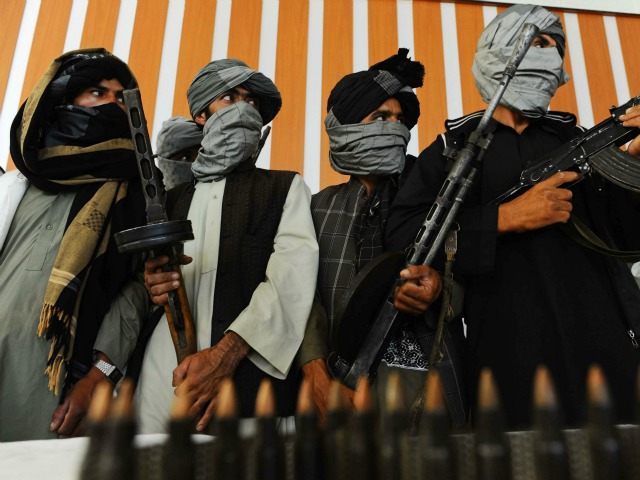Pakistan has reportedly urged the United States to reconsider its offensive against the Afghan Taliban, fearing it will lose influence over the terrorist group if America fails.
U.S. President Donald Trump’s administration has stepped up American military operations against the terrorist group, launching an unprecedented air campaign against the group’s economic engine — the illicit traffic of opium and its heroin derivative.
Under Trump, the U.S. military has also launched a record number of airstrikes against the Taliban and other jihadist groups in Afghanistan.
Nevertheless, assessments published late last year showed that the Afghan Taliban still controls or contests about half of Afghanistan.
Dawn reports:
Pakistan is believed to have told US interlocutors that a major military offensive against the Taliban from both sides of the Afghan border, if ending in failure, will have negative consequences for the entire region.
Diplomatic sources, who spoke to Dawn, believe that the key element in the new US strategy for Afghanistan is to launch a two-pronged military offensive that inflicts a military defeat on the Taliban and forces them to join the Afghan reconciliation process on Kabul’s conditions.
Pakistan is reportedly worried that if the U.S. offensive does not work, it will lose its influence over the Afghan Taliban.
Dawn notes:
They [Pakistanis] fear that a major military offensive, without engaging some Taliban factions in direct talks first, could be counter-productive. The Taliban might outlive this offensive too, and deal with it “lying low in their mountain fastness, as they did with previous offensives,” as one interlocutor said.
And in the process Pakistan will lose whatever influence it has.
Islamabad’s concerns come soon after the Trump administration suspended an estimated $1 billion in security aid to Pakistan over the Muslim-majority country’s alleged reluctance to target the Afghan Taliban and other jihadist groups.
In response, Pakistan has reportedly rescinded its alliance with the United States, saying it refuses to do more to combat terrorism in the South Asian region.
The United States is engaged in an ongoing dialogue with Pakistan to “hammer this out,” U.S. Secretary of Defense James Mattis said on Friday, referring to the differences between the two countries.
Mattis explained that suspending security aid to Pakistan over Islamabad’s refusal to take action against terrorist groups’ killing and maiming Americans in Afghanistan was always part of the South Asia strategy announced by President Trump last August.
“Everything we’re doing is integrated into this strategy,” proclaimed the defense secretary.
When unveiling his strategy, the U.S. president did warn Pakistan it had “much to lose” if it continued to harbor jihadists. Last month, the Pentagon determined Pakistan continues to provide sanctuary to terrorist groups.
Mattis urged Pakistan to take decisive action against the Afghan Taliban and the Haqqani Network, which is considered the top threat facing U.S. troops in Afghanistan.
“Pakistan has lost more troops total than all of NATO coalition combined in the fight against them. But we’ve had disagreements, strong disagreements on some issues, and we’re working those,” acknowledged the Pentagon chief.

COMMENTS
Please let us know if you're having issues with commenting.